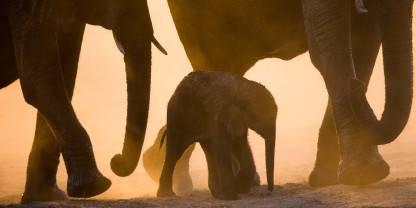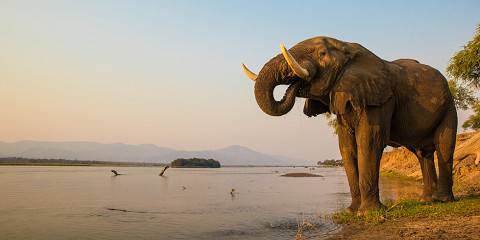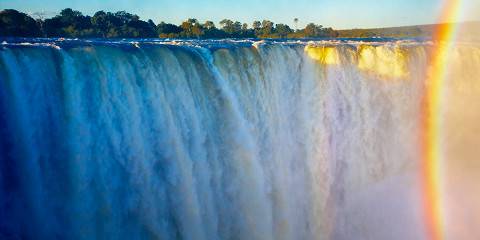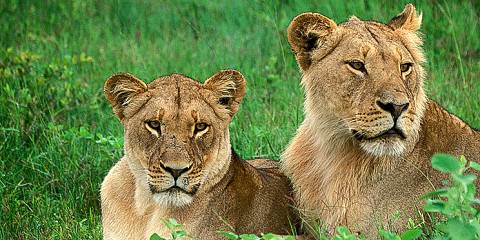Hwange National Park is the largest and most popular park in Zimbabwe. Easily visited from Victoria Falls, it offers excellent general wildlife viewing, including all the Big Five (although rhinos are very scarce). Hwange is most famous for its elephants, which are present in impressive numbers throughout the year, but frequently gather around waterholes in their hundreds during the Dry season.

-
Best Time To Go
- July to October (Middle and end of the Dry season)
-
High Season
- June to October (Hwange’s main area can become busy)
-
Size
- 14,650km² / 5,656mi²
-
Altitude
-
850-1,133m /2,789-3,717ft
 View Photos
View Photos
 View Photos
+23
Photos
View Photos
+23
Photos
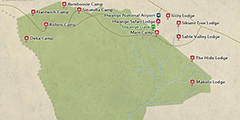 Open Map
Open Map
Pros & Cons
- Top wildlife viewing with all of the Big Five present
- Wide variety of animals
- Night drives and are available at many camps
- Close to the popular Victoria Falls
- Accommodation options for all budgets
- Excellent self-drive and self-catering facilities
- Roads that were previously tarred, and in good condition, have mostly disintegrated
Wildlife
With more than 100 mammal and almost 500 bird species recorded, Hwange is one of southern Africa’s most biodiverse parks. Elephant numbers are staggering, with up to 50,000 individuals present at the height of the Dry season (April to October). A healthy population of up to 1,000 lions is supplemented by leopard, cheetah and African wild dog. An impressive variety of antelope includes gemsbok, sable antelope, eland and greater kudu.
More about Hwange’s wildlifeScenery
Hwange is not scenic in a conventional sense, but the immersive wilderness atmosphere of this vast park more than compensates. It stands on the eastern edge of the vast Kalahari sands and scrublands. Habitats include teak forest, thornveld and . There is little natural water in Hwange and animals are dependent on artificial , especially during the Dry season (April to October).
Activities
For most visitors to Hwange, the main activity will be . If you stay at a private camp, guided drives will most likely be included in your package. Self-drive safaris are also straightforward (main roads are navigable in an ordinary car, but some minor roads might require 4x4 and/or high-clearance vehicle). Most camps also offer guided , but only those on private concessions are allowed to do night drives.
Weather & Climate
Hwange has two clear-cut seasons. The Dry season (April to October) starts off warm before temperatures dip in the middle of the year. Then the heat quickly gets turned up, peaking in the blazing heat of October. The Wet season (November to March) cools things off at first with its stormy weather before settling into a pattern of hot, humid days.
More about the weather and climateBest Time To Visit
Hwange is at its best from July to October, during the middle and end of the Dry season, when animals crowd the waterholes. You will pretty much have the park to yourself in the Wet season (November to March), but animals are more scattered at that time.
More about the best time to visit
